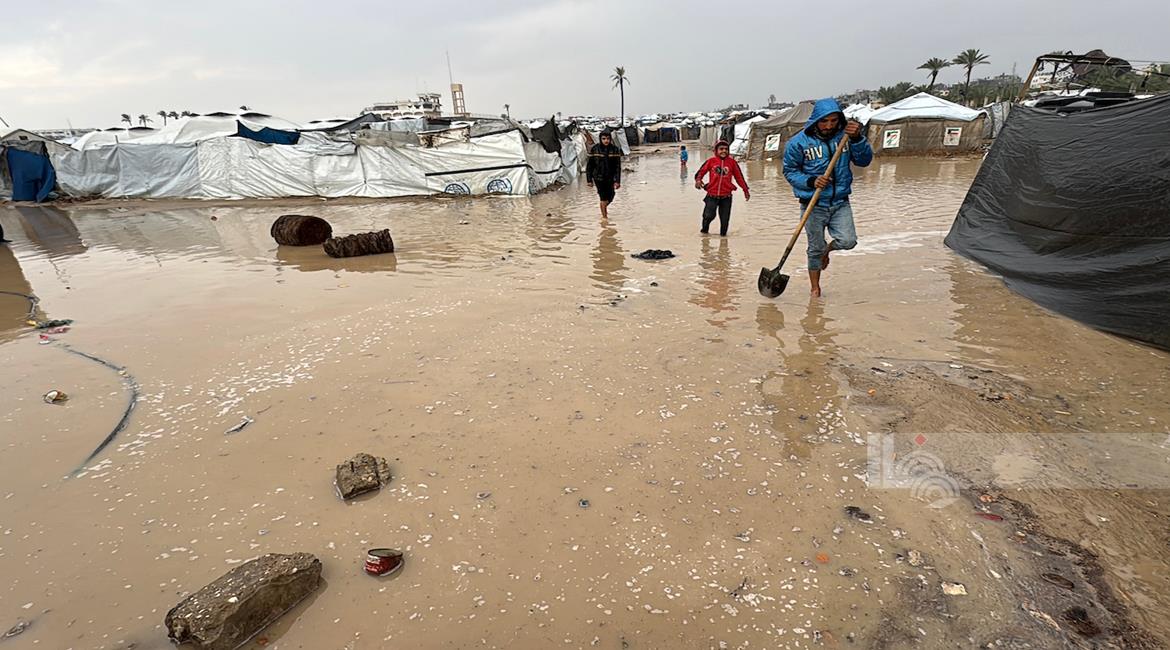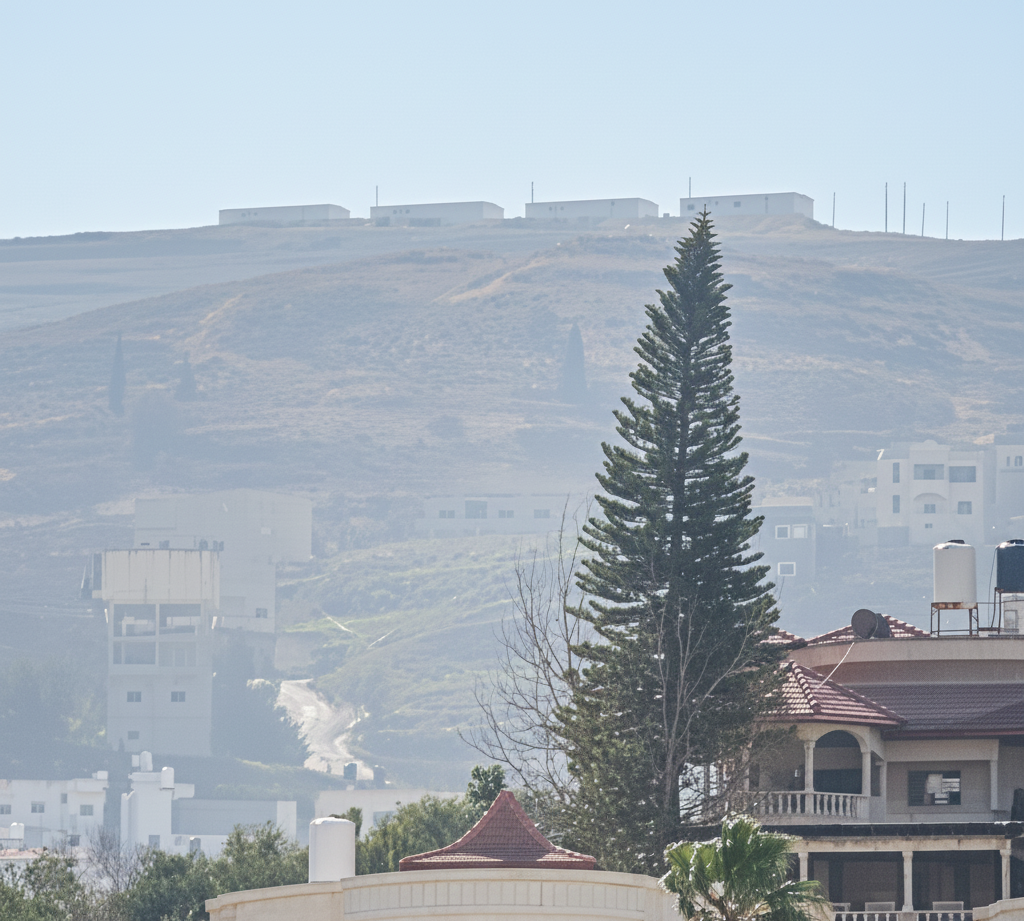By: Khaled Tayeh
RAMALLAH, November 28, 2017 (WAFA) – On the floor sat a blind Palestinian man, burdened with mixed feelings about an uncertain future that he may have to face anytime soon.
Even though this would not be the first time he is worried about what is going to happen next in Jabal al-Baba, his community of residence east of Jerusalem, what makes it different this time is that his entire community is now sharing that feeling as each and every one of them lives under the threat of dispossession.
Suleiman Jahaleen, 57, known in his community as Abu Ghassan, a father of 10 and a longtime resident of Jabal al-Baba, has had his home demolished twice in the past by the Israeli authorities for alleged construction without permit.
As a matter of fact, the entire community of 57 families or 300 people, was and still is under threat of losing their homes for the same pretext; but the residents know that the real reason is to remove them from that area and replace them with Jewish settlers in a project known as E1 where Israel plans to build a major settlement that will connect to the nearby illegal settlement of Ma’ale Adumim, divide the occupied West Bank in half and cut East Jerusalem from its West Bank environs.
Due to his blindness at an early age, Jahaleen, whose pre-1948 Bedouin family origins go back to the town of Beer Sheba in the Naqab desert, currently south of Israel, was not able to work to support his family. He says that just like almost 80% of Jabal al-Baba residents, he and his family depend mainly on herding and raising livestock as a primary source of income.
Jahaleen says that even though Israeli authorities demolished his family home twice, it never stopped him from starting again from scratch, as clinging to his land and surviving in his community became a daily routine.
The first time his home, built from cinder blocks, was demolished was in March, 2014.
“In 2014, four to five homes were demolished. We were then given caravans by international organizations. Three of these caravans were confiscated by Israeli settlers only a day after they were set up,” Jahaleen said. “Mine was confiscated too.”
He recalls being given aid by international organizations again to build another home in an area that was different from the one that he had his first home in.
His second home was 50 square meters in area. He worked hard on it, providing it with more facilities and such. But the home did not last for so long because it was demolished in January, 2016, and Jahaleen and his family were dispossessed and became homeless for the third time.
But his will to survive yet again was even stronger. Immediately after his home was demolished, he had another home constructed as he said he couldn’t live in an open space along with 10 children.
Jahaleen’s eldest son is 28 years old, and the youngest is 9. His sons did not get full education and are not able to find a steady, good job. He says that the entire family’s most significant source of income is raising livestock, just like many of the families that live in Jabal al-Baba.
But even with herding come a lot of difficulties. Jahaleen says that the fodder and other animal feed is expensive to buy and is barely enough to feed his entire sheep herd.
Getting an education is also another difficulty in Jabal al-Baba as there are no schools in the area; so the Bedouins, who choose to send their kids to get education, have to walk all the way from the community to the nearest town, al-Izariyeh, which usually takes a lot time.
The Bedouin community and its residents in Jabal al-Baba face a real threat of being entirely removed and displaced as Israel plans to expand the illegal settlements, in what is referred to as the E1 plan, which aims to separate Jerusalem from the West Bank and isolate many Palestinian communities, which would split the West Bank into two.
As of recently, some Israeli officials, including Prime Minister Benjamin Netanyahu and Defense Minister Avigdor Lieberman, have called for the immediate removal and relocation of the Bedouin community in Jabal al-Baba, and on November 9, the entire community received eviction orders and were given eight days to leave.
The residents did not stand still in front of the military orders. They filed an objection to Israeli courts against those orders as they violate the international law, including the Geneva Convention.
Neta Amu Shiv, an Israeli independent lawyer, said she will take the eviction case on behalf of Jabal al-Baba community to the Israeli High Court if the government persists in its steps to displace them.
“We have filed an objection against the military orders against the community of Jabal al-Baba as they try to evict its residents into an unknown location,” said Amu Shiv. “These orders violate the Geneva Conventions and each and every human rights law. If our objection gets rejected, we will go to the Israeli High Court, which will probably have a problem considering all the legal arguments based on the international law.”
Palestinian Prime Minister Rami Hamdallah has also strongly spoken against Israeli plans in Jabal al-Baba, describing it as a red line.
“As the Prime Minister of the State of Palestine, let me say clearly: we stand with our Palestinian citizens in Jabal al-Baba, as well as with all of the other Palestinian communities across the West Bank that Israel seeks to displace in order to build illegal settlements in their place. If the Israeli authorities proceed with this demolition, or with the displacement of entire Palestinian communities in ‘Area C’ of the West Bank, a red line will have been crossed.”
Meanwhile, Jahaleen and his entire community are living on the hope that Palestinian and international intervention is going to help them stay in their homes, where they have lived for decades.
K.T./M.K.













